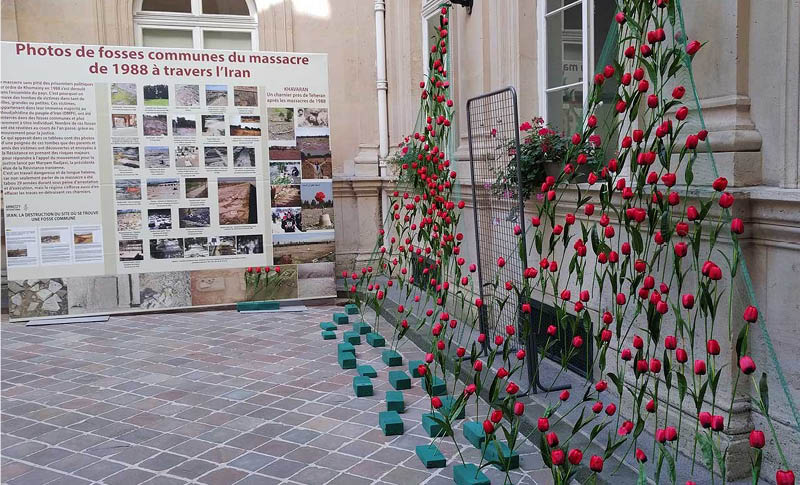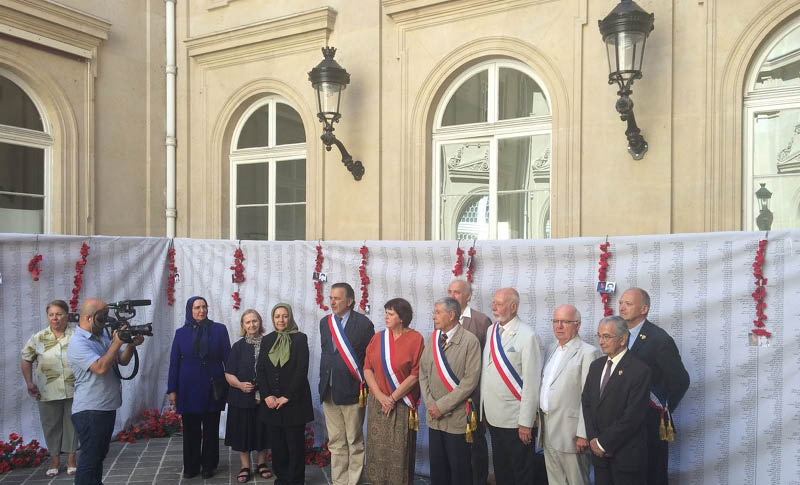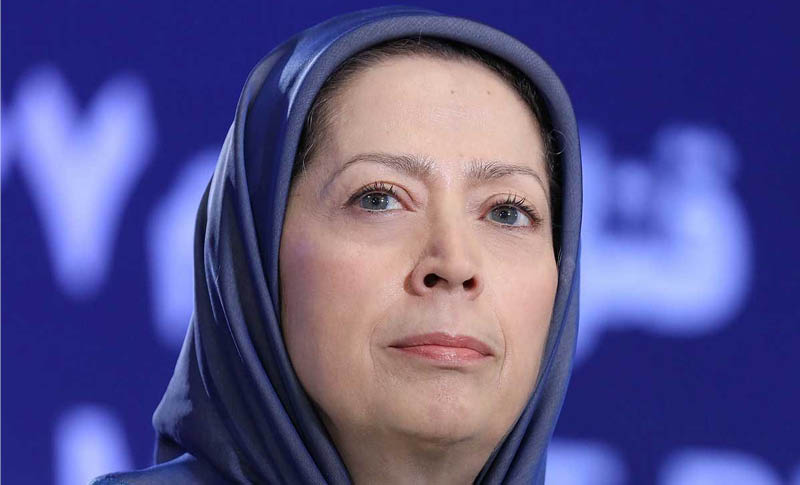
By Armin Baldwin
On the 31st anniversary of the massacre of Iranian political prisoners, and to mark the International Day of the Victims of Enforced Disappearances on August 30, 2019, a conference entitled, “Iran: Massacred Human Rights: 31st anniversary of massacre of 30,000 political prisoners in 1988” was held on Friday at Paris District 1 City Hall.
In 1988, Ruhollah Khomeini, then-supreme leader of the Iranian regime, issued a fatwa (religious decree) to purge Iran of political prisoners. In the span of a few months, Iranian authorities executed 30,000 prisoners, mostly members and supporters of the People’s Mojahedin Organization of Iran (PMOI/MEK).
French mayors and members of parliament and human rights defenders were present at the event and showed their support for the International Campaign to Call for Justice for the 1988 massacre and called for an international inquiry and trial of the perpetrators of this crime, including the regime’s Supreme leader Ali Khamenei and Ebrahim Raisi, the head of judiciary.

Mrs. Michèle de Vaucouleurs, member of French National Assembly and president of the French Parliamentary Committee for a Democratic Iran tweeted: “Alongside with Jean-Francois Legaret Mayor of first arrondissement of Paris payed tribute to the 1988 Massacre. Remembering that it’s 31 years, more than 30 thousand political prisoners were executed by the Iranian regime. This slaughter must not be forgotten nor unpunished. “
#1988Massacre hommage au côté de Jean-François Legaret –@Mairiedu1 – souvenons qu’il y a 31 ans 30 000 prisonniers politiques furent exécutés par le régime des Mollahs, cette tuerie ne doit pas être oubliée, ne dois pas rester impuni #Iran #DevoirDeMemoire #cpid pic.twitter.com/cOwIsOr0CF
— MichèledeVaucouleurs (@MdeVaucouleurs) August 30, 2019
In December 2018, Amnesty International published a 201-page report, “Blood-soaked secrets: Why Iran’s 1988 prison massacres are ongoing crimes against humanity.”
Amnesty International called on the UN to launch an independent investigation to help bring those responsible for these abhorrent crimes to justice. It wrote, “Iran is facing a crisis of impunity.”
On the occasion of the International Day of the Victims of Enforced Disappearances, the human rights group Iran Human Rights Monitor (Iran HRM) published a new report on Friday titled “Enforced Disappearances in Iran and the 1988 Massacre.”
The Iran HRM report pointed out that the Iranian regime has a history of cracking down on its opponents. “Dissident intellectuals and students, ethnic groups and religious minorities, and members and supporters of the People’s Mojahedin Organization of Iran (PMOI, Mujahedin-e Khalq or MEK) have always been targeted,” the report said.
The rapport urged “the international community, the UN Security Council, the UN Human Rights Council and its member states, as well as other relevant United Nation agencies, the European Union, all advocates of human rights and justice to end the immunity of those responsible for the 1988 massacre.”
Mostafa Pour Mohammadi, Iranian regime president Hassan Rouhani’s Minister of Justice (2013-2017), recently defended the horrendous slaughter and enforced disappearances of thousands of political prisoners who were mostly members of the PMOI/MEK.

“Granting immunity to the perpetrators of the 1988 massacre must not continue ”, said Mrs. Maryam Rajavi, President elect of the National Council of Resistance of Iran, in a message to the conference.
She continued: “31 years on, the perpetrators of this massacre continue to be among the highest officials of the Iranian regime. In recent months, Khamenei appointed one of the principal executioners involved in the 1988 massacre as head of the Judiciary. Another executioner is Rouhani’s Minister of Justice. The regime also continues to refuse giving information on the victims of the 1988 massacre and the families of those massacred are still being persecuted. Despite passage of 31 years, they still do not know where their loved ones are buried, “
She called on the international community to end three decades of impunity for the clerical regime’s leaders in being held accountable for their crimes and refer Iran’s human rights violations dossier, particularly the massacre in 1988, to the UN Security Council.
Mrs. Rajavi emphasized that “Khamenei and other leaders of the Iranian regime must face justice for committing crimes against humanity. The United Nations must launch an international mission to investigate the 1988 massacre in Iran. And the world must recognize the Iranian people’s right to resist and fight for the overthrow of the ruling religious fascism.”







